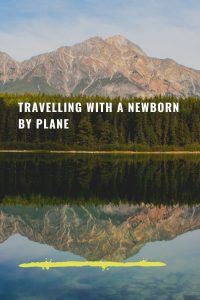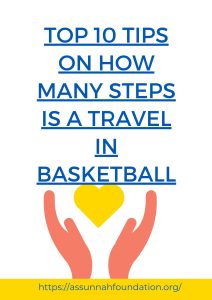Contents
- 1 Travel with a newborn
- 1.1 How soon can you travel with a newborn
- 1.2 Understanding Newborn Travel of Travel with a newborn
- 1.3 Timing Your Travel with a newborn
- 1.4 Preparing for Travel
- 1.5 Managing Travel with a Newborn
- 1.6 FAQ
- 1.7 When to travel with newborn by car
- 1.8 what to do if you’re sick before a flight
- 1.9 Traveling with a 1 month old by car
- 1.10 Preparing for the Journey
- 1.11 Managing the Trip
- 1.12 Health and Safety Considerations
- 1.13
- 1.14 Top 10 Tips on How many steps is a travel in basketball
- 1.15
Wondering “How soon can you travel with a newborn”? Discover expert tips and essential advice for safe and comfortable newborn travel in our comprehensive guide
Travel with a newborn

Travel with a newborn : Since it consolidates the difficulties of really focusing on a small kid with the energy of going to new spots, going with an infant is an exceptional encounter. This trip can be unimaginably satisfying, giving regarded memories and opening entrances, yet it moreover needs careful meaning to ensure a peaceful experience for yourself as well as your young person. The secret blueprints oversee everything about the real Travel with a newborn, whether it’s a brief excursion or a long flight, such as conversing with your pediatrician and pressing the right things. Grasping your youngster’s necessities, keeping them in a protected climate, and keeping them blissful are colossal forward moving steps. This all out partner will assist you with examining all bits of going with a child, address commonplace worries, and confirmation a bewildering family venture.
Preparation is Key about Travel with a newborn
Before setting out, you need a game plan. For specific guidance regarding your child’s health and Travel with a newborn status, consult your pediatrician first. They can offer guidance regarding vaccinations, scheduling, and special Travel with a newborn considerations. To guarantee that your child is prepared to travel, ensure that their inoculations are all current and that they have had a new exam.
Packing wisely is another important aspect. Essentials include: Travel with a newborn
- Wipes and Diapers: Bring more than you anticipate using. For both you and your baby, bring an additional set of clothes and supplies for a few days. Supplies for Feeding: Whether you breastfeed or bottle feed, get ready accordingly. Bring bottles, pre-measured formula, and, if necessary, a cooler bag for bottle feeding. For breastfeeding, an agreeable cover or nursing pad may be valuable
Managing the Journey of Travel with a newborn
For Road Trips:
- Vehicle Seat Wellbeing: Ensure your child’s vehicle seat is accurately introduced and satisfies all security guidelines. The seat ought to be back confronting and at the appropriate point to guarantee your child’s security and solace. Incessant Breaks: Plan to shut down each 1-2 hours to beware of your child, offer feedings, and change diapers. Breaks on a regular basis help to avoid discomfort and overstimulation. Control of the temperature: Make sure your baby can get comfortable in the car. Dress them in layers that can be effectively changed depending on the situation.
For Air Travel with a newborn:
- Timing Your Flight: Flying with a newborn can be less stressful if you plan the trip around how much time they need to sleep. If at all possible, choose a direct flight to cut down on Travel with a newborn time. The majority of airlines grant free Travel with a newborn to infants who sit on your lap. However, if you need a car seat or prefer more space, you might want to reserve a separate seat for your baby. Ear Pressure: Feed your baby during takeoff and landing or give them a pacifier to help them adjust to changes in cabin pressure. The pressure in their ears may be lessened by this. Prepare for airport security screenings by packing for security. You may be required to hold your baby while going through the metal detector and to separate baby food and liquids from your carry-on items.
Health and Safety Considerations of Travel with a newborn
Protecting your child solid and during movement requires watchfulness. Screen for any indications of sickness and be ready with an essential clinical pack, including a thermometer, child safe drugs, and medical aid supplies. In the event of an emergency, keep a list of pediatricians or medical facilities nearby.
Also, hygiene is very important. Make sure your baby’s feeding bottles and utensils are clean by washing your hands frequently and using hand sanitizer. Try not to open your child to swarmed or unsanitary regions to diminish the gamble of diseases.
How soon can you travel with a newborn
How soon can you travel with a newborn : Going with an infant can be a significant choice and includes a couple of contemplations. By and large, numerous pediatricians suggest holding on until the child is no less than 2 to 3 weeks old prior to voyaging, particularly in the event that you’re thinking about air Travel with a newborn or a long excursion. This gives the baby enough time to adjust to life outside the womb and address any initial health issues.
For vehicle Travel with a newborn, you can for the most part begin sooner, however it’s essential to make continuous stops for taking care of and diaper changes. Many airlines allow newborns as young as a week old to fly when traveling by air; however, it is recommended that you verify the policies of the particular airline.
Top 10 Tips on How soon can you travel with a newborn
Top 10 Tips on How soon can you travel with a newborn : Going with a newborn child can be a mind-boggling task for unseasoned guardians. When determining how soon it is safe to go on a trip with your precious newborn, many factors become possibly the most important. From prosperity thoughts to facilitated factors, every perspective ought to be carefully organized. This comprehensive guide examines every fundamental detail you need to know in order to make an informed decision about traveling with your child. Whether you’re going on a brief excursion or a long one, realizing the basics can assist you and your child with having a protected and charming excursion.
Understanding Newborn Travel of Travel with a newborn
It takes more than just packing a bag and hitting the road when traveling with a newborn. A closer look at what you need to think about is as follows:
Factors to Consider Before Traveling
Before you choose when and how to go with your infant, think about the accompanying elements: Strength of the Child: Babies are particularly powerless against sicknesses and diseases. Talk with your pediatrician to guarantee your child is prepared for movement. Method of Transportation: The sort of transportation (vehicle, plane, train) will influence your itinerary items and how you get ready for the excursion. Length of Movement: Brief excursions may be more straightforward to oversee than long excursions. Plan as per your child’s resistance and necessities.
Pediatrician’s Advice
Based on your baby’s health and any particular requirements, they can offer individualized guidance. Common considerations include: Inoculations: Guarantee your child is in the know regarding immunizations prior to voyaging. Patterns of Eating and Sleeping: Talk about how to control eating and sleeping during the trip. Travel Protection: Consider getting travel protection that covers babies.
Timing Your Travel with a newborn
Ideal Age for Traveling with a Newborn
Before undertaking any significant travel, many experts recommend waiting until your baby is at least two to three months old. Your child’s immune system is stronger at this age, and they may have established more consistent feeding and sleeping routines.
Table: Recommended Travel Timing for Newborns
| Age | Health Considerations | Travel Tips |
|---|---|---|
| 0-2 Weeks | Very vulnerable to infections | Avoid travel; focus on bonding and health checks |
| 2-6 Weeks | Immune system developing | Consult pediatrician; plan for short trips |
| 6-12 Weeks | More robust immune system | Ideal time for short to moderate trips |
| 12+ Weeks | Well-developed immune system | Suitable for longer trips; ensure regular breaks |
Risks and Precautions
There are some dangers when traveling with a newborn baby: Openness to Microorganisms: Infants have more fragile insusceptible frameworks, making them more helpless to contaminations. Travel Weakness: Babies can get handily wrecked by new conditions and changes in daily practice. Taking care of Issues: Overseeing taking care of timetables and supplies can be trying while at the same time voyaging.
Preparing for Travel
Packing Essentials
While getting ready for movement, it is critical to pack brilliant. Consider the following list of essentials: Pack enough diapers and wipes for the journey, plus some extras. Feeding Equipment: As required, include bottles, formula, or a breast pump. Clothing: Take enough new clothes with you for your baby in case there are any spills. Comfort Items: Include a favorite toy or blanket for your baby to help them feel safe.
Table: Packing Checklist for Newborn Travel
| Item | Purpose | Quantity |
|---|---|---|
| Diapers | For changing | 10-12 |
| Wipes | For cleaning | 1 pack |
| Bottles/Formula | For feeding | 3-4 bottles |
| Baby Clothes | For changing | 3-4 outfits |
| Blanket/Toy | For comfort | 1 each |
Choosing the Right Mode of Transportation
DDepending on the mode of transportation, traveling with a newborn has different effects: Traveling by car: Provides for more adaptability and frequent stops. Utilize a well-fitted vehicle seat and guarantee your child is safely lashed in. Air Travel: Think about the carrier’s strategies on going with newborn children. Bring fundamental records and get ready for changes in compartment pressurization. Train Travel: Trains frequently give more space to moving around and taking care of however may need protection.
Managing Travel with a Newborn
Keeping the Baby Comfortable
Follow these guidelines to keep your baby comfortable while traveling: Keep an Everyday practice: Attempt to adhere to your child’s taking care of and dozing plan as intently as could be expected. Dress Fittingly: Dress your child in layers to acclimate to evolving temperatures. Feed and Hydrate: Make sure your baby gets enough water and food. To deal with any unanticipated delays, bring additional supplies.
Handling Common Challenges
Going with an infant can accompany difficulties. How to deal with some common problems: Colic and Crying: Try to avoid panicking and attempt to relieve your child with delicate shaking or delicate music. Rest Disturbances: Establish a recognizable rest climate by utilizing your child’s sweeping or a background noise. Concerns about your baby’s health: Keep an eye on him or her for any symptoms of illness and get medical help if you need to.
Health and Safety Tips
Managing Health During Travel
Inoculations and wellbeing checks: to watch out for your child’s wellbeing while you travel, ensure they have had a new wellbeing exam and are modern on their immunizations. Contacts for Emergencies: At your destination, conduct a check of the local pediatricians and emergency contacts. Purchase travel insurance to guarantee your child’s safety on the road.
Safe Travel Practices
Wellbeing in a Vehicle Seat: Utilize a vehicle seat that has been introduced accurately and follows security guidelines to assist with guaranteeing a more secure excursion. Wellbeing while flying: Ensure your kid is gotten during departure and landing and adhere to the rules for going with babies. Hygiene: To keep your hands clean, wash them frequently and use hand sanitizer.
FAQ
When to travel with newborn by car

When to travel with newborn by car : Going with an infant via vehicle requires cautious preparation and timing to guarantee both the child’s solace and security. While each family’s circumstance is special, here are a few critical contemplations for deciding when to set out on an excursion with your infant.
Travelling with a newborn by plane

Travelling with a newborn by plane : Going with an infant via plane can be a smooth encounter on the off chance that you get ready satisfactorily and keep a few fundamental rules. Here is a far reaching manual for assist you with exploring air travel with your little one.
Pre-Flight Preparations
1. Consult Your Pediatrician:
Check with your pediatrician to make sure your baby is healthy enough to travel before booking your flight. Talk about any potential wellbeing concerns and get guidance on dealing with your child’s necessities during the flight.
2. Choose the Right Flight:
Decide on a non-stop trip to limit the time spent voyaging and lessen the potential for disturbances. Early morning or late-night flights can line up with your child’s rest plan, making the excursion more reasonable.
3. Book the Right Seat:
Although the majority of carriers allow infants under the age of two to sit on your lap for no charge, you might want to reserve a different seat for additional comfort. Bassinets for babies are accessible from certain carriers, however they are every now and again restricted and should be saved ahead of time.
what to do if you’re sick before a flight

what to do if you’re sick before a flight : If you are ill before a flight, it is essential to take precautions to protect your own health and the health of those around you. This is the very thing to do if you get yourself unwell before your excursion:
1. Assess Your Symptoms
1.1. Survey the Seriousness: Figure out how terrible your side effects are. Even though mild symptoms like fatigue or a mild headache may not pose a significant threat, more severe ones like a fever, persistent coughing, or digestive issues may raise concerns.
1.2. Consider Infectious Circumstances: If you experience symptoms of an infectious disease, such as the cold or seasonal influenza, it is essential to consider the potential risk to other travelers and staff.
2. Consult a Healthcare Professional
2.1. Counsel a Specialist: In the event that you don’t know whether voyaging is ideal for you, converse with a specialist. They can provide guidance on whether it’s safe for you to fly and give proposition for managing your aftereffects.
2.2. Request a Medical Certificate: If your illness is severe or you need to change or cancel your flight, you should request a medical certificate. This documentation can be used to support your insurance claims and airline cancellation or change policies.
- American Academy of Pediatrics – Travel Tips for Families
- Centers for Disease Control and Prevention (CDC) – Traveling with Infants
Traveling with a 1 month old by car

Preparing for the Journey
Consultation with Your Pediatrician
It’s essential to converse with your pediatrician prior to going on an excursion with your one-month-old. In light of your child’s wellbeing, they can offer you explicit guidance, including any essential safeguards. Coming up next are significant focuses to examine: Traveling with a 1 month old by car
- Status of Health: Make sure your baby is healthy and up to date on all vaccinations. Feeding: During the trip, talk about feeding routines and how to manage them. Emergency Care: At your destination, get recommendations for nearby medical facilities.
Packing Essentials
Pressing productively can have a major effect you would say. Here is an agenda of basics to bring for your 1-month-old:
- Vehicle Seat: Guarantee you have an appropriately introduced, back confronting vehicle seat that fulfills security guidelines. Diapers and Wipes: Pack enough for the excursion, in addition to additional items in the event of postponements. Taking care of Provisions: Incorporate jugs, equation, or bosom siphon, and a cooler sack if fundamental. Clothing: Bring a few changes of garments for your child, taking into account weather patterns. Blanket or Sleep Sack: for warmth and comfort while traveling. Pacifiers and Toys: To mitigate and engage your child.
Table: Packing Checklist for Traveling with a 1-Month-Old by Car
| Item | Purpose | Quantity |
|---|---|---|
| Diapers | For changing | 10-12 |
| Wipes | For cleaning | 1 pack |
| Bottles/Formula | For feeding | 3-4 bottles |
| Baby Clothes | For changing | 3-4 outfits |
| Blanket/Sleep Sack | For comfort and warmth | 1 each |
| Pacifiers/Toys | For soothing and entertainment | 2-3 each |
Car Seat Safety
The vehicle seat is one of the most basic parts of going with an infant. Guarantee that: Installation: The manufacturer’s instructions were followed when installing the car seat. The car seat is positioned at an appropriate angle and faces the rear. Fit: The harness is snug but comfortable, and your baby is securely strapped in.
Managing the Trip
Maintaining a Routine
At more than a month old, your child is logically still developing a daily routine for sleeping and taking care of themselves. To keep them agreeable, try to keep up with their normal routine as much as possible. The most effective method to make it happen: Dealing with Schedule: Plan for standard dealing with breaks. In the event that you’re breastfeeding, pick a careful and agreeable area to take care of. Assuming you are recipe taking care of, ensure you have sufficient prepared to-utilize equation and clean water. Plan for dozing: Make stops to allow your child to rest. If you want to pull over for a longer rest, you can use the vehicle seat or a flexible bunk.
Handling Common Issues
Going with a 1-month-old can introduce a few difficulties. This is the way to resolve normal issues: Colic and Crying: Resist the urge to panic and take a stab at mitigating methods like delicate shaking, playing delicate music, or utilizing a pacifier. A familiar toy or blanket can also soothe. Travel fatigue: Make frequent stops to check on your baby’s comfort and give them a chance to stretch. Try not to drive for extended lengths without breaks. Temperature Control: Guarantee the vehicle is at an agreeable temperature for your child. Dress them in layers so you can change their attire on a case by case basis.
Safety Tips for Long Drives
For longer drives, think about these extra tips: Breaks: Plan to shut down each 1-2 hours to beware of your child and have some time off from driving. Solace Things: Bring things that will assist with keeping your child agreeable, for example, a movement cushion or a covering for the vehicle window. Drinking enough water and eating well will help you stay alert and responsive while driving.
Health and Safety Considerations
Monitoring Your Baby’s Health
Watch out for your youngster’s prosperity while simultaneously journeying. Temperature: Dress your baby in a way that keeps them from getting too hot or cold. Managing and Diapering: Confirmation standard feedings and diaper changes to keep your child satisfying. Be on the lookout for any ill effects or discomfort, and if they are significant, seek medical attention.
Emergency Preparedness
Prepare for emergencies by:
- Having Contacts: Keep a list of people to call in an emergency on you at all times, including pediatricians and hospitals near your destination. Clinical Unit: Load a little clinical pack with fundamental supplies like a thermometer, child safe prescriptions, and medical aid basics.





1 thought on “Travel with a newborn |10 Tips on How soon can you travel with a newborn”